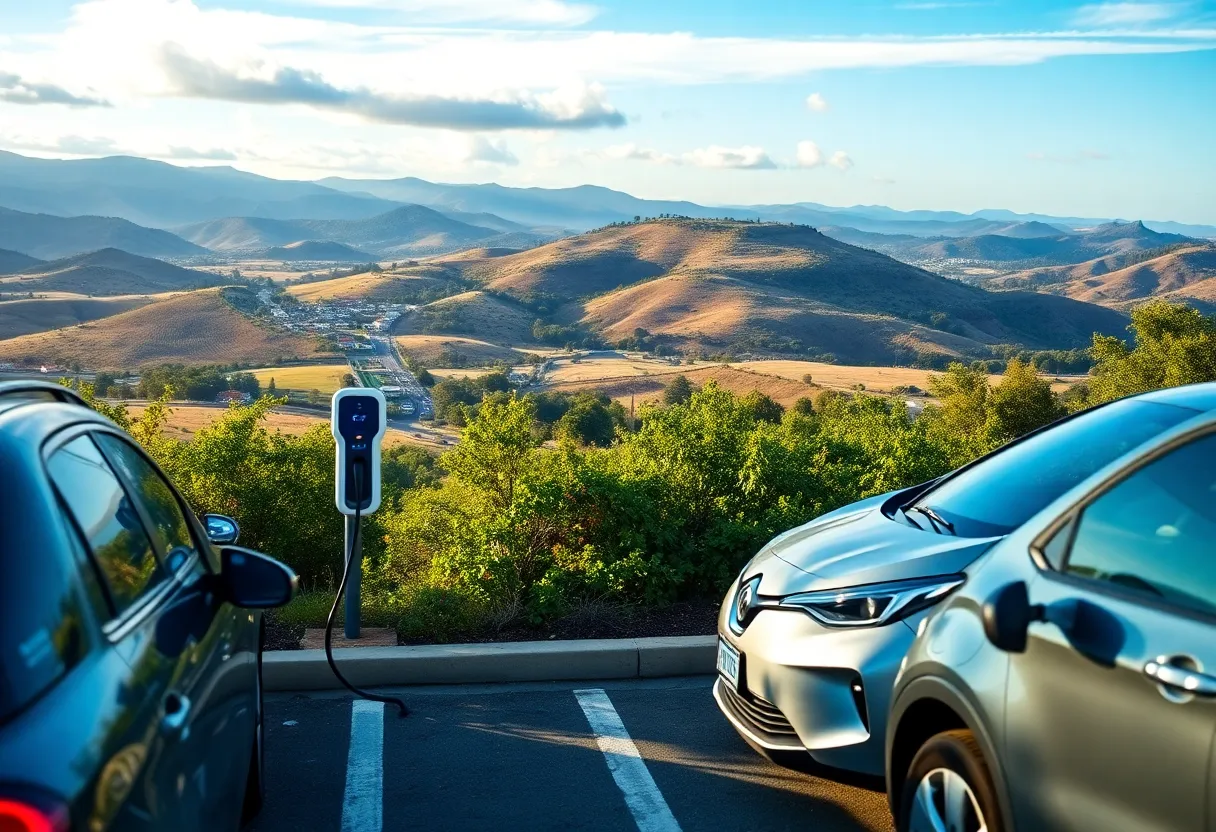News Summary
California is at the forefront of a national debate as the Senate considers resolutions to block the state’s stringent vehicle emissions standards. These regulations include a plan to phase out sales of new gas-powered cars by 2035. While proponents argue for cleaner air, critics claim the rules impose an undue electric vehicle mandate, potentially affecting consumers and the economy. As California continues its ambitious goals for electric vehicle adoption and emissions reduction, the outcome of this legislative move could set a precedent for other states.
California is at the center of a heated national debate as the U.S. Senate prepares to vote this week on resolutions aimed at blocking the state’s stringent vehicle emissions standards. These regulations include a historic plan to phase out the sale of new gas-powered cars by 2035, a move California Governor Gavin Newsom announced in 2020 as part of efforts to combat transportation emissions.
Senate Majority Leader John Thune (R-S.D.) has revealed that both the Senate and the House are considering resolutions that target California’s emissions policies. These proposals follow a recent determination by the Senate Parliamentarian and the U.S. Government Accountability Office that California’s emission regulations should not be subjected to the Congressional review process being employed at this time. A final vote on these resolutions is expected soon.
Opponents of the California regulations, primarily Senate Republicans, argue that the state’s rules represent an unwarranted nationwide electric vehicle mandate that would have detrimental effects on consumers, the economy, and energy supply. They describe the measures as an “improper expansion” of the Clean Air Act.
California has long been permitted to establish stricter emissions standards than those at the federal level due to its prevalent air pollution difficulties. The state’s progressive regulations require automakers to increase the percentage of zero-emission vehicles sold, with ambitious targets set at 43% of new sales by 2027, 68% by 2030, and ultimately reaching 100% by 2035. However, sales of used gas cars, plug-in hybrids, and hydrogen-powered vehicles will still be permitted.
The Senate’s current actions come in the wake of a previous administration’s attempt to revoke California’s authority to enforce its own emissions standards, a power that was restored under the Biden administration. More than a dozen states have since adopted California’s emissions policies, although some, such as Vermont, have halted enforcement of the rules.
Meanwhile, Senate Democrats have voiced strong opposition to the GOP’s efforts, raising concerns over the legislative process and the potential implications for future governance. Senate Minority Leader Chuck Schumer has criticized the procedures used, likening them to a ‘nuclear’ option that lowers voting thresholds and could undermine bipartisan cooperation.
There are also growing worries about California’s electric grid’s capacity to manage an anticipated increase in electric vehicle ownership. Despite such challenges, the state is maintaining its goal of achieving net-zero greenhouse gas emissions by 2045 and is expanding its charging station infrastructure to facilitate this transition.
Recent statistics illustrate a surge in electric vehicle purchases among California residents, with a significant proportion of all U.S. EV registrations occurring within the state. However, federally offered tax credits for electric vehicle purchases are at risk of being cut under proposed Republican measures, potentially hindering further adoption of these vehicles.
In contrast to the state’s efforts, rideshare company Uber has announced difficulties in meeting its electric vehicle targets due to high prices and inconsistent government support for EV policies. Additionally, San Francisco is moving forward with its curbside charging station initiative to provide enhanced access for EV owners without private garages. This program, spearheaded by the company it’s electric, has started installation on Fillmore Street, aiming to resolve the lack of available charging for residents in multi-unit dwellings.
The current public charging cost for electric vehicles ranges between $1 and $5 per hour, which is considered essential for supporting EV ownership in urban locations. California’s ambitious climate objectives continue, aiming for 25% of private vehicles to be electric by 2030 and for a full 100% to be electric by 2040, necessitating a major expansion of public charging facilities.
Deeper Dive: News & Info About This Topic
- San Francisco Chronicle: Electric Car Costs in California
- Wikipedia: Electric Vehicle
- AP News: California Electric Cars and Emissions
- Google Search: California Vehicle Emissions Standards
- CBS 4 Indy: Senate to Block California Vehicle Standards
- Encyclopedia Britannica: Air Pollution
- NBC Bay Area: Electric Vehicle Charging Program in San Francisco
- Axios: Electric Vehicle Adoption in San Francisco

Author: STAFF HERE CORONADO
The Coronado Staff Writer represents the experienced team at HERECoronado.com, your go-to source for actionable local news and information in Coronado, San Diego County, and beyond. Specializing in "news you can use," we cover essential topics like product reviews for personal and business needs, local business directories, politics, real estate trends, neighborhood insights, and state news affecting the area—with deep expertise drawn from years of dedicated reporting and strong community input, including local press releases and business updates. We deliver top reporting on high-value events such as the Coronado Island Film Festival, productions at Lamb’s Players Theatre, community workshops at John D. Spreckels Center, and iconic celebrations at Hotel del Coronado. Our coverage extends to key organizations like the Coronado Chamber of Commerce and Visit Coronado, plus leading businesses in hospitality, dining, and tourism that drive the local economy. As part of the broader HERE network, including HERESanDiego.com, HEREHuntingtonBeach.com, HERELongBeach.com, and HERELosAngeles.com, we provide comprehensive, credible insights into Southern California's dynamic landscape.


